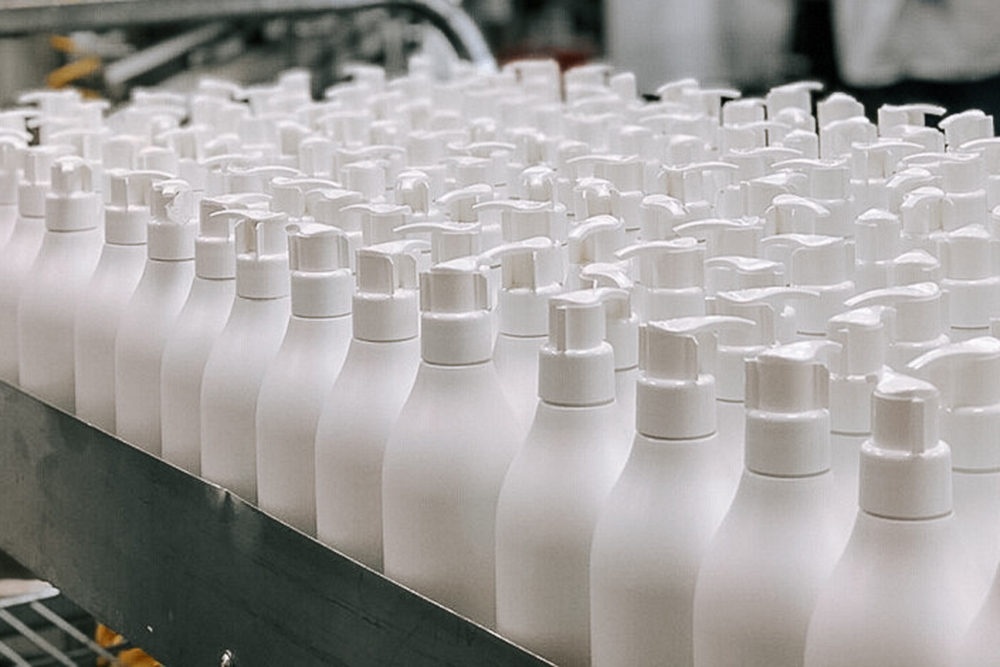Calendar Icon
Mar 30, 2020
Person Bust Icon
By Karl Vogel
![]() RSS
Submit a Story
RSS
Submit a Story

Due to the coronavirus outbreak and the ensuing COVID-19 crisis, the demand for hand sanitizer has skyrocketed, creating a shortage that is hitting healthcare providers – from hospitals and doctors’ offices to nursing homes – especially hard.
The U.S. Food and Drug Administration (FDA) has issued a temporary relaxation of some regulations on the alcohol used to produce hand sanitizer.
The Nebraska Ethanol Board (NEB), however, is working with the FDA and other federal agencies to further loosen those regulations to allow ethanol producers to provide a sufficient amount of alcohol to meet the world’s demand.
“It’s about being permitted to make a certain product. In Nebraska, we make 2.2 billion gallons of ethanol every year, and you can make a heck of a lot of hand sanitizer with that,” said Hunter Flodman, assistant professor of practice in chemical and biomolecular engineering and NEB member and technical advisor.
Normally, the FDA requires the highest purity standards on the alcohol used in producing healthcare products, such as hand sanitizer. Those standards have been relaxed slightly in recent weeks, but still only a small number of facilities in the U.S. make the alcohol used in those products. Flodman said those plants have a very small capacity compared to Nebraska’s ethanol plants.
The purity of the product from Nebraska’s 25 ethanol plants is slightly below those standards and is mostly intended for fuel in motorized vehicles with combustion engines or for industrial purposes. Flodman said that product could easily be used to meet the world’s demand for hand sanitizer.
“In order to make hand sanitizer, the alcohol has to be a pharmaceutical-grade product, according to the FDA rules. We’re working to allow industrial-grade and food-grade alcohol to be used,” Flodman said.
And with most of the country being told to stay home during this crisis, there are fewer people driving motorized vehicles and, thus an abundant supply of ethanol that manufacturers can’t sell.
That surplus would be readily available to alleviate the demand for making hand sanitizer and help keep more people employed in Nebraska, which ranks second among U.S. states in the production of ethanol and third in corn production, which is typically used to make ethanol.
Flodman noted that Green Plains’ plant in York is shipping its supply of industrial-grade ethanol to the Nebraska Department of Correctional Services. Inmates working at the Cornhusker State Industries shops in state correctional facilities will begin producing hand sanitizer for NDCS staff members and to distribute to other state agencies.
“The product is there, and these plants would like to donate it for a good cause. They don’t even want to charge money for it,” Flodman said. “Plants are slowing down and idling. Already, two of the plants in the state have shut down, and within two weeks probably have most of the plants will close because of the oversupply.
Even if demand for ethanol-blended fuels were to rise, he added, using these slightly less-pure grades of ethanol would still be a viable option.
“The U.S. makes a lot of ethanol, and the point is there is enough for everyone in the world to use one ounce of hand sanitizer every day; that would be normal U.S. production,” Flodman said. “It’s needed to save lives, and we would like to make it so that it’s legal and there aren’t any liability issues for the ethanol producers.”
Submit a Story